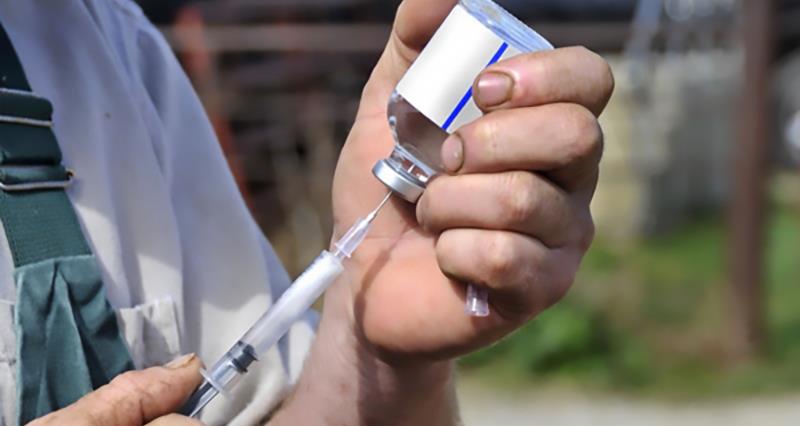The latest VARSS report, published by the Veterinary Medicines Directorate, has revealed that multi-drug resistance in UK animals remains at its lowest level since reporting started a decade ago.
This marks significant progress for farmers and vets who have worked hard to reduce antibiotic use in food-producing animals.
The figures show that antibiotic sales in food-producing animals remain at a 59% reduction since 2014.
Sales of antibiotics of highest critical importance to human health account for less than 0.5% of total veterinary antibiotic sales.
The report marks 10 years of collecting data on AMR (antimicrobial resistance) from pigs and poultry and for the first time reports on AMR levels in sheep, beef and dairy cattle.
A second set of figures, published in the RUMA Targets Task Force 2 (TTF2) progress report, also highlights that 2023 has been another year of great effort and commitment from across UK livestock sectors in the responsible use of antibiotics, with national usage figures remaining low and largely unchanged from last year.
The report summarises the fourth year of progress against the current set of antibiotic use targets which span 2021–2024.
The majority of sectors saw maintained or reduced levels of antibiotic use and, where there were increases, it was in response to disease challenges where targeted responsible use was necessary to manage disease and prevent animal welfare being compromised.
Livestock breakdown
The Medicine Hub data, developed and resourced by AHDB on behalf of the industry, showed that HP-CIA (highest priority critically important) antibiotics use is minimal across the ruminant sectors, while part-year data for antibiotics over all three sectors is also promising and reinforces the long-held view that ruminants are not high users of antibiotics.
The TTF also showcases the upskilling efforts of farmers, vets and students around best practice in medicine use, with initiatives apparent around farm health planning, endemic disease control and biosecurity.
In sheep, Footrot vaccine uptake is also up from 16.3% to 17.8%, following ongoing supply shortages in 2022 which took some time to recover.
“These latest figures demonstrate that the collaborative, voluntary efforts over the past decade in addressing AMR are clearly paying off.”
NFU chief animal health and welfare adviser Cat McLaughlin
Poultry breakdown
The antibiotic usage data from members of the BEIC Lion Scheme continues to remain below the 1% bird days – the sector remains below target by 22%.
This is a significant achievement, especially considering that the national flock expanded by nearly two million birds over this time-period.
For the seventh year running, no HP-CIAs were used.
The sector has maintained robust vaccination programmes and good biosecurity with ongoing co-operation and understanding among vets and farmers that antibiotic use is generally a last resort.
For the poultry meat sector, British Poultry Council member businesses have reduced their total antibiotic use by 81% since 2012:
- broiler chickens are at 13.54 mg/PCU (under the 25 mg/ PCU sector-specific target)
- turkeys are 33.62 mg/PCU (under 50 mg/PCU)
- both down from last year.
Collaborative efforts paying off
On the publication of the reports, NFU chief animal health and welfare adviser and RUMA chair Cat McLaughlin said: “UK agriculture is a leader when it comes to the responsible use of antibiotics, and these latest figures demonstrate that the collaborative, voluntary efforts over the past decade in addressing AMR are clearly paying off.
"There is a much-reported global statistic that about 70-80% of antibiotics are being used by animals while 20-30% are used by humans. In the UK, the reality is reversed with about 70% humans and 26% animals.
“Animals do get sick at times even with the best health care and preventive plans in place, and antibiotics remain a key medicine in the treatment ‘toolbox’ to help recovery. In those situations, antibiotics are rightfully needed and should be delivered under the mantra of ‘as little as possible, as much as necessary".
